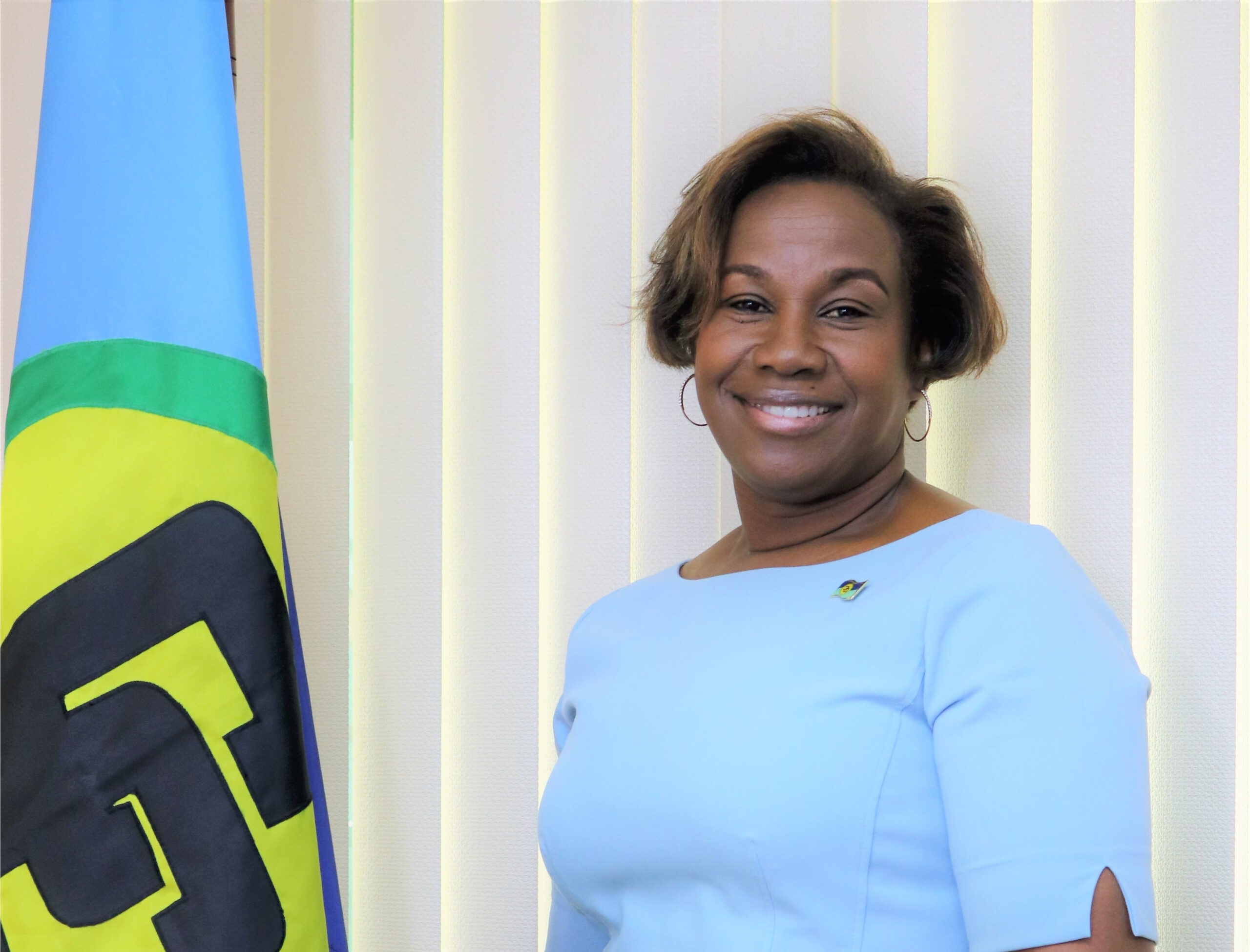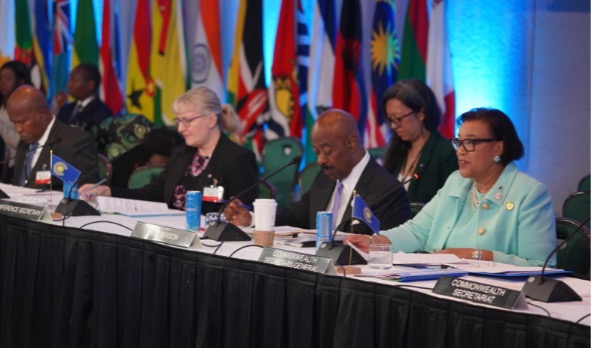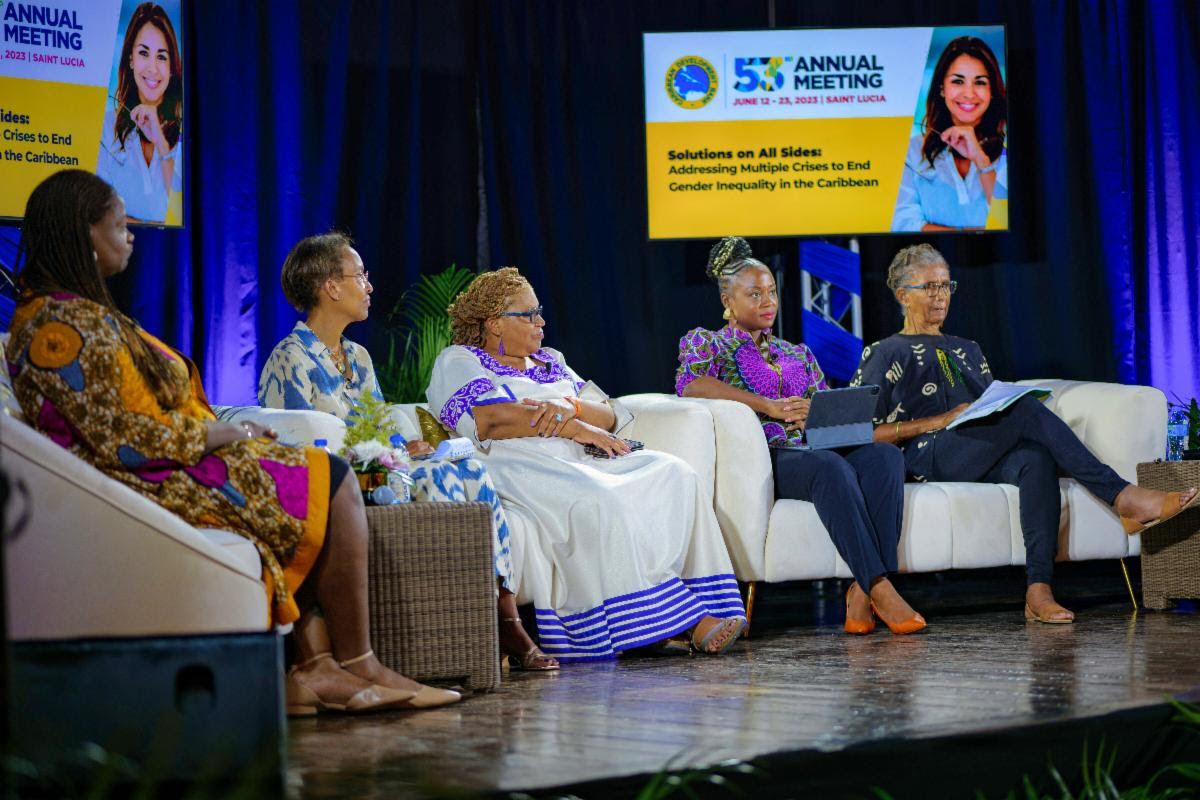By Desmond Brown
BRIDGETOWN, Barbados, Apr 27 2017, (ACP-IDN) – The tiny Caribbean island of Barbados has taken a major step towards ensuring gender equality in its judicial system with the development of a draft gender equality protocol for magistrates and judges.
The document, being hailed as the first of its kind within the Caribbean Community (CARICOM), will support the judiciary in using gender analysis to ensure that both women and men have equal access to justice.
“If gender stereotypes are unconsciously held, if they are not the product of a deliberate intention to discriminate, how can we as judges avoid falling prey to them? This is where the establishment of this protocol is so important,” said Justice Adrian Saunders, a judge at the Trinidad-based Caribbean Court of Justice (CCJ).
“The protocol provides an easy reference point for judges and magistrates to be guided on the standards and approaches that are expected of us when we deal with issues that are gender sensitive. One of the goals of the protocol is to train the judicial mind in ways that promote impartial adjudication in the sphere of gender and gender relations,” Saunders said.
The protocol was developed by the Judicial Reform and Institutional Strengthening (JURIST) Project, in collaboration with the office for the Caribbean office of UN Women and the Caribbean Association of Judicial Officers (CAJO), with funding from the government of Canada.
Giving assurances that under the protocols both men and women will receive equal access to justice, Chief Justice Sir Marston Gibson said: “Gender equality should not lead us in the direction of favouring any one particular gender. Gender equality means that we must be impartial and we must look at the evidence, but we must be sensitive to the idea that what we do as judges will influence either gender equality or gender inequality if we’re not sensitive.”
However, even as the island takes this major step, concerns linger about gender equality in Barbados.
Former environment minister Liz Thompson noted that men continue to outnumber their female counterparts in top positions and has called for affirmative action for women in the workplace. “I think we have to do that in relation to the workplace, getting more women into the top ranks; we have to do it in relation to Parliament and Cabinet … and boards as well.”
Thompson said: “It has to be a conscious decision that we’re going to introduce some kind of affirmative action or quotas, and you have skilled women who can fill the positions so there’s no question of just taking up a person who is wearing a skirt and say ‘come girlfriend’, dragging them out of a beauty salon and say ‘you take this job here on the board’. She may come out of a beauty salon but she would have to fit the bill.”
Citing Europe and the United States as examples, she pointed out that female-owned businesses have access to certain jobs and government contracts, because quotas have been established for such enterprises, adding that in Africa and India, there are also mechanisms to facilitate access to capital and special funds for women.
Thompson also said there is a need to establish policies to facilitate a better work-life balance for working women. “Women continue to have the responsibility of caring for the elderly, caring for children, and we have to have more flexible working systems, opportunities where you’re bringing children into common nurseries and spaces, where women don’t have to be leaving at three o’clock to run to pick up the children, get them to lessons or somewhere, go back to work, run back out again. So that is important.
“I don’t know about politics, I think we’re still going to have a challenge even with the numbers because the reality is that politics is a blood sport and men and women don’t want to be defeated,” she stated.
On the issue of women in politics, and more specifically in political leadership, a senior fellow at the Institute of Commonwealth Studies, the University of London and Massey College at the University of Toronto, Sir Ronald Sanders argues that it is not a gender issue.
“The Caribbean’s modern history has many such women, among them Mia Mottley, the present leader of the Barbados Labour Party. Then, there are those who made it to the office of head of government – Eugenia Charles of Dominica, Janet Jagan of Guyana, Portia Simpson-Miller of Jamaica and Kamla Persad-Bissessar of Trinidad and Tobago,” said Sir Ronald, who is also Antigua and Barbuda’s ambassador to the United States and the Organisation of American States.
“The essential ingredient was not their gender, but their readiness to take on the rough and tumble of politics. Appealing to gender alone and the refrain of ‘time for a woman’ does not cut it in the world of real politics. Faint hearts do not make leaders; courage, drive and political astuteness are the criteria by which any leader is judged – man or woman.”
Sir Ronald noted that in Antigua and Barbuda, a woman has joined the fray for the second time to become leader of a political party.
“On the last occasion, on the rubble of a defeated United Progressive Party, Joanne Massiah sought the leadership in a contest against Harold Lovell. She had won her seat in Parliament in the general election; Lovell had not. Her decision to run for the leadership had nothing to do with gender, and all to do with a belief that she was a better candidate,” he said.
“As it turned out, she may have been too trusting of a system that she subsequently regarded as treacherous when Lovell won the contest overwhelmingly, but as she saw it not fairly. Eventually, bad blood between the two led to her expulsion from the UPP. Now, she has formed the Democratic National Alliance (DNA), and Antigua and Barbuda has its first woman as the leader of a political party, not because of gender but because she holds the view that she has the capacity to lead the country,” Sir Ronald added. [IDN-InDepthNews – 27 April 2017]
Photo: Liz Thompson, Former environment minister of Barbados. Credit: Barbados Today.
Note: This report is part of a joint project of the Secretariat of the ACP Group of States and IDN, flagship agency of the International Press Syndicate
Like our Facebook page https://www.facebook.com/CaribbeanNewsService/
Follow us on Twitter https://twitter.com/CNewsService
Follow us on Instagram https://www.instagram.com/caribbeannewsservice/




